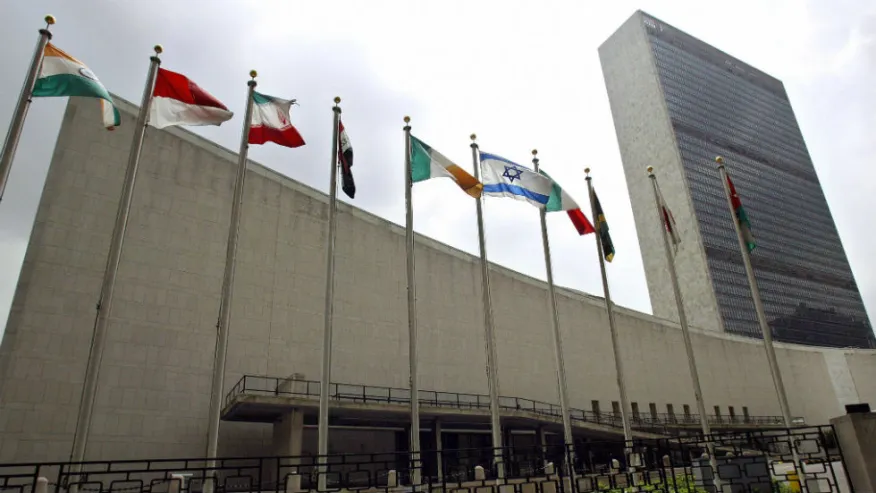For all the calamity that happened in 2020, the year also brought historic moves toward peace in the Middle East that nobody could have envisioned even a year ago. In particular, the Abraham Accords — the series of groundbreaking diplomatic openings between Israel and several Middle Eastern states, led by the United Arab Emirates (UAE) — have brought about a landmark shift in outlook that will transform our region. It seems that after decades promoting the idea of “tolerance” at home in the UAE, we have learned the value of coexistence with other peoples in our region. Now, at this unfathomably difficult time of political transition in the U.S., many around the world are asking whether Americans’ ability to coexist — at home and abroad — is still strong.
Here in the UAE, the pursuit of “tolerance” has played a crucial role in easing the region into this new era. But tolerance isn’t enough. “Tolerating” Jewish people, for example, is meant to put up with them, reluctantly. What we needed was a state of coexistence in which the needs, aspirations, fortunes and, indeed, the lives of our people were shared with the people of Israel.
The United States has always been a model of coexistence. After World War II, the U.S. led the creation of large global institutions like the United Nations to promote cooperation and collective action. And more importantly, the world saw an incredibly diverse American population speak with one voice. The image reaching the Middle East today, however, is a different one. We see Americans fighting among themselves. We see Americans sacking their own Capitol. We see anti-Semitism on the rise. We see African Americans dying in the streets.
The divides in America seem stark to me, and I worry that if the American people cannot pull together as a nation, America will lose its moral authority internationally — a loss that would affect its ability to make and keep peace and rally the world on common challenges, from security to climate change. One cannot simply decree a state of “coexistence.” A nation and its people must work for it. That starts at home, with a multiethnic country with religious, linguistic and cultural diversity, rooted in the idea that these differences make the social fabric stronger.
Those who merely practice “tolerance” are destined for conflict because the focus is entirely on what makes a people different rather than on what they hold in common. The nation that protects and encourages coexistence is one that embodies law, rights, duties and full citizenship for all. We have been striving for such a society in the UAE for decades, and it is what allowed our breakthrough diplomacy with Israel to happen.
Nations that aspire to and work for the future, dreaming of a better life for the generations to come, must practice these values of coexistence abroad. Indeed, it in their interest to do so. The world has evolved and developed in such a way that no country can do without the knowledge and support of other countries. Economics, technology and trade link us inexorably and give each a stake in the success of the other. The Abraham Accords are the ultimate expression of the importance of coexistence: We celebrate today with Israel as brothers and sisters and, together, we can take on big regional challenges like poverty, extremism and climate change. We, and the world, are better off for it.
What is the alternative? Perpetual tolerance is an oxymoron. Tolerance is fleeting. Patience can wear out. Some may exploit our differences for political gain. And all of that can lead to conflict. Isolation is not an option, either. As the English poet John Donne once said, “no man is an island.” Nor can a state isolate itself in the modern world and still progress and thrive. Isolation leads to decay and retreat, which, in fact, make a nation more dangerous.
Time will tell if coexistence is deep enough to endure in our fraught region. The key lies in accepting the other and believing that difference and diversity are necessary and good. It is imperative to respect different beliefs and dissenting views, to interact positively with those who hold these different beliefs and views and refrain from interfering in or judging their beliefs. For the Middle East, coexistence is in fact rooted in a common heritage: Islam, Judaism and Christianity all descend from one prophet, Abraham, which makes us, at heart, one big, sometimes estranged family.
In the Middle East, we live in a different time than that of our ancestors. There are no more empires or caliphates, and there is no open, unclaimed geographic space. Our consciousness has become elevated from one of confrontation to one that embraces coexistence. In the UAE we are following this mindset by moving forward with the Abraham Accords. This is essential for the interests of the whole region, to create a better future for the new generation, one of peace and safety, to allow them the opportunity to live and grow in a society of civility and prosperity. The U.S. still has old dividing lines and factions that barely tolerate each other. We hope that America will again be the shining city on the hill, the exemplar of the ideals of peaceful coexistence to the world. Before that can happen, the American people must pull together.
Dr. Ali al Nuaimi is chairman of the Defense Affairs, Interior and Foreign Relations Committee of the UAE’s Federal National Council, a representative legislature whose 40 members, half elected indirectly and half appointed, serve in an advisory role to the emirates’ leadership.
Article Source: https://thehill.com/opinion/international/536647-americans-must-pull-together-to-provide-the-world-with-leadership/
